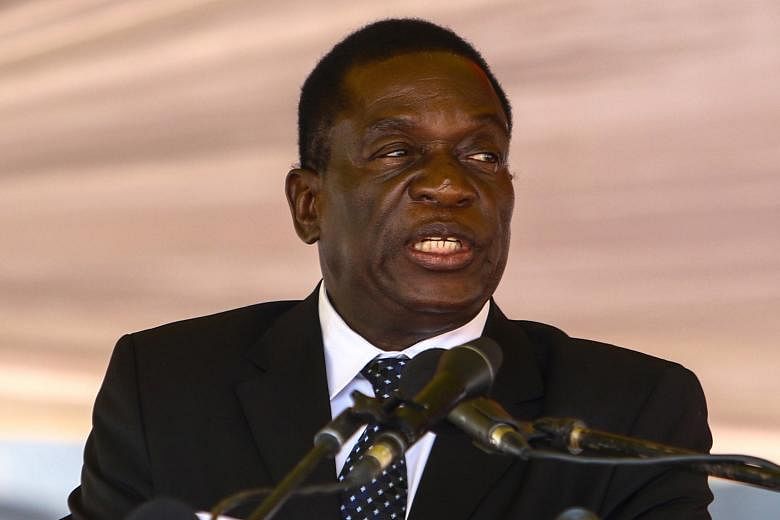HARARE • When Zimbabwean leader Robert Mugabe sacked his then Vice-President Joice Mujuru in front of 12,000 baying party members in 2014, Mr Emmerson Mnangagwa sat quietly in the crowd.
The man who stood to gain most from the dismissal betrayed nothing through his expression and gentle clapping - a survival tactic honed during five decades of service to the mercurial Mr Mugabe.
Speaking at the congress, Mr Mnangagwa announced revisions to the party's Constitution that backed "total ownership and control" of Zimbabwe's natural resources.
"We will remain forever masters of our own destiny," Mr Mnangagwa said, to cheers from the crowd. It was a key insight to the party's direction as it contemplated life beyond Mr Mugabe.
"There are no arguments around his credentials to provide strong leadership and stability, but there are questions over whether he can also be a democrat," said political science lecturer Eldred Masunungure of the University of Zimbabwe.
With his appointment in 2014 as official deputy to Mr Mugabe, Mr Mnangagwa had appeared well set as the eventual successor to Africa's oldest head of state.
The 75-year-old was one of Mr Mugabe's most trusted lieutenants, having been at his side in prison, during wartime and then in government. Along the way, he earned the nickname "Ngwena" - crocodile in the Shona language - an animal famed in Zimbabwean lore for its stealth and ruthlessness.
Mr Mnangagwa backed Mr Mugabe's economic nationalism, especially a drive to force foreign firms to hand majority stakes to local blacks, suggesting he may not be the pro-market pragmatist many investors were hoping for.
He has been in every administration since independence, holding posts as varied as minister of state security, defence and finance, as well as Speaker of Parliament.
Trained as a communist guerilla in China in the 1960s, he was sentenced to death for sabotage by the British authorities following his capture while in one of the earliest guerilla units fighting white colonial rule in what was then Rhodesia. He was 19 and only spared the noose by a law prohibiting the execution of convicts under 21.
After a decade in prison, often sharing a cell with Mr Mugabe, Mr Mnangagwa became personal assistant to the leader of the liberation struggle, and went on to head the guerilla movement's feared Internal Security Bureau.
When Mr Mugabe fired Mr Mnangagwa as vice-president last week for showing "traits of disloyalty", he removed a possible successor who was also one of his last remaining liberation war comrades.
REUTERS

